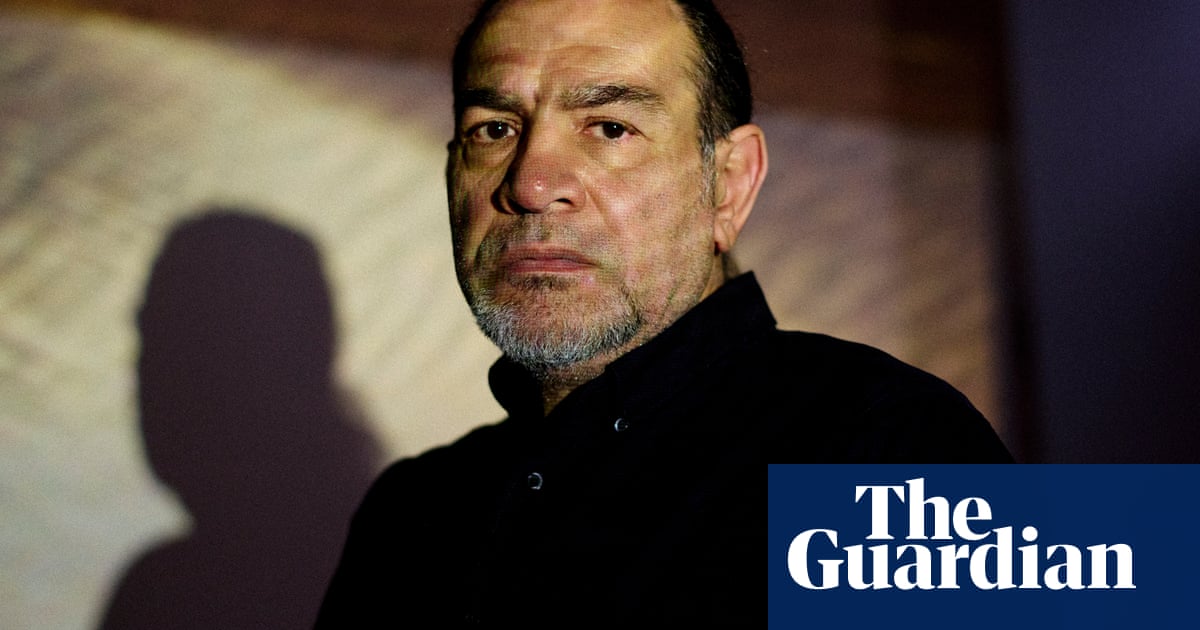An exhibition featuring works by Lebanese Australian artistKhaled Sabsabithat was called off by Monash University in Marchwill open to the public next week, with the university announcing it had reversed its decision.
Monash University “postponed” Stolon Press: Flat Earthat Monash University Museum of Art (Muma) in Melbourne in the wake of Sabsabi being dumpedas Australia’s representative at the 2026 Venice Biennale. It was the first time a show had been pulled in Muma’s 50-year history.
The exhibition, originally scheduled to open on 8 May, includes large “spiritual” calligraphic paintings by Sabsabi that he has made with Lebanese coffee and draw on his “personal memories of his childhood in Lebanon during the civil war”.
At the time of the postponement, a spokesperson for Monash claimed “consultation with our communities” had revealed that Muma needed “to deepen its collaboration and engagement on this exhibition. Postponing the event will allow this important work to be undertaken.”
Sources told Guardian Australia they feared the timing indicated the decision had been influenced by federal arts body Creative Australia’s cancellation of Sabsabi and curator Michael Dagostino’s contract to represent Australia at the 2026Venice Biennale. That decision followed days of pressure from the Australian newspaper and Liberal politicians over Sabsabi’s use of footage of the 9/11 terrorist attacks and former Hezbollah leader Hassan Nasrallah in old works.
Sabsabi’s participation in a mass boycott of the 2022 Sydney festivalover the sponsorship of an event by the Israeli embassywas also singled out by the Australian, amid a wider increased scrutiny of public figures who criticised Israel’s conduct in Gaza or spoke in support of Palestine after the start of the Israel-Gaza war.
Sabsabi has always fiercely rejected any claim that his work promotes antisemitism or terrorism,calling the suggestion “disgusting”. Thousands of artists and art experts have called on Creative Australia to reverse its decision.
On Thursday, Monash University confirmed Stolon Press: Flat Earth will open at Muma on 29 May, saying it was “postponed … while the university conducted consultations with Monash students and community.”
“The university concluded its engagement process with relevant staff and students, which has enabled us to consider a range of perspectives prior to the exhibition,” Monash said in a statement.
“The University recognises the work of Stolon Press as curator of, and featured artist in, the exhibition Flat Earth and its patience while the University conducted its consultations to ensure the exhibition proceeds in the manner and spirit originally curated by Stolon Press.”
Monash has so far not detailed the reasons why it needed to conduct consultations or why that required the postponement of an exhibition 18-months in the making.
The exhibition is curated by Stolon Press, a Sydney-based art and publishing collective run by Simryn Gill and Tom Melick, and also features works by writer and anthropologist Elisa Taber.
Days after Flat Earth was cancelled,Sabsabi told Guardian AustraliaCreative Australia’s decision was “dismantling” his career and impacting his wellbeing.
“Nobody should have to go through this torture,” he said. “It’s unfair and it’s put on by Creative Australia and those people that made that decision … essentially gave the go-ahead to define me as somebody who I am not.”
Creative Australia said it sacked Sabsabi and Dagostino to avoid a “prolonged and divisive debate” – but thedecision provoked a storm of backlash in the art world, as well as a broader conversation about the pillorying of public figures who not only voiced criticism of Israel, but even those who spoke in support of Palestinians.
